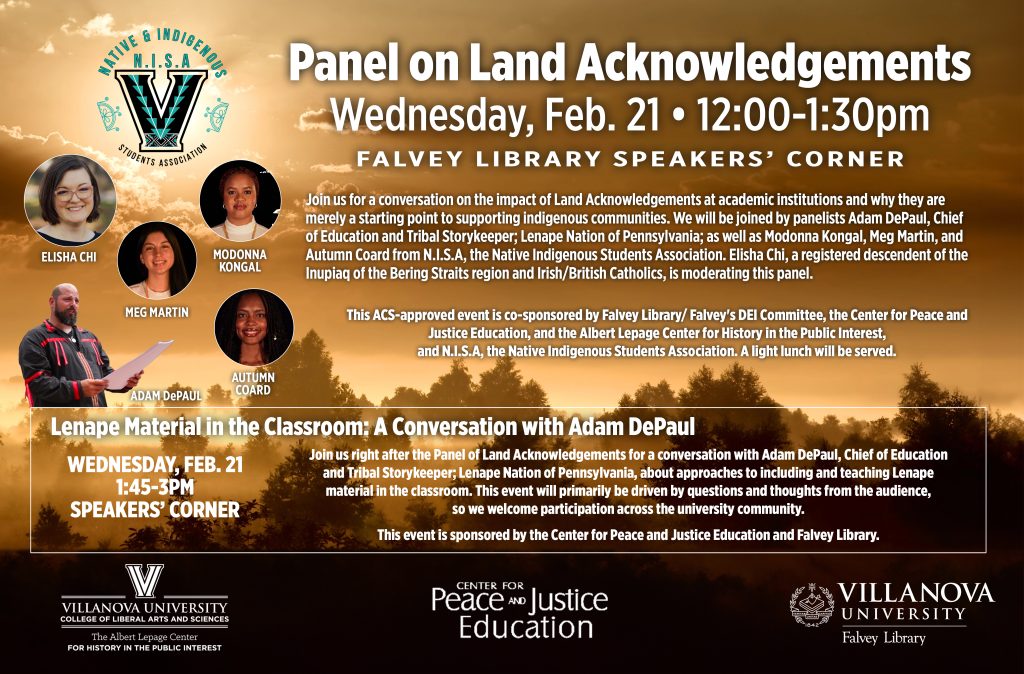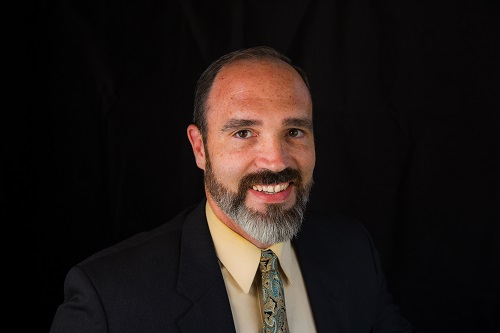
Please join us on Tuesday, September 26 from 5-6:30 p.m. in Villanova University’s Falvey Library for a Scholarship@Villanova event featuring Olukunle P. Owolabi, PhD, Associate Professor of Political Science and Global Interdisciplinary Studies and Director of Africana Studies. The event will celebrate Dr. Owolabi’s recently published book, Ruling Emancipated Slaves and Indigenous Subjects: The Divergent Legacies of Forced Settlement and Colonial Occupation in the Global South and will be held in the Library’s Speakers’ Corner space on the first floor. In person attendance is encouraged; however, attendees can also view the event via livestream here.
In his book, Dr. Owolabi examines why forced settlement colonies, where European colonists established agricultural plantations with imported and enslaved African labor, tend to outperform continental African states on key indicators of educational attainment, human well-being, and postcolonial democratization. His argument highlights the impact of legal-administrative reforms that expanded the legal rights and political agency of emancipated Afro-descendants in forced settlement colonies, in contrast to the ‘native legal codes’ that restricted the legal rights and political agency of indigenous black populations that were colonized after the abolition of slavery in the New World.
This ACS-approved event, co-sponsored by Falvey Library, Department of Political Science, Department of Global Interdisciplinary Studies, and the Albert Lepage Center for History in the Public Interest, is free and open to the public. Light refreshments will be served. Following the talk there will be a book sale and signing.
See our interview with Dr. Owolabi, below, to learn more about his book and which topics he will delve deeper into during the event.
Describe your book, Ruling Emancipated Slaves and Indigenous Subjects: The Divergent Legacies of Forced Settlement and Colonial Occupation in the Global South.
Ruling Emancipated Slaves and Indigenous Subjects examines the varied developmental legacies of European colonization for enslaved Africans and their descendants in the New World, and for indigenous black populations in continental Africa. Specifically, the book seeks to explain a historical paradox: i.e. why forced settlement colonies, where European colonists established large-scale agricultural plantations with enslaved and imported African labor, tend to outperform areas of the world where Europeans exploited the land, labor, and resources of indigenous non-white populations on key indicators of human well-being and postcolonial democratization. This book explains this paradox by contrasting the harsh, arbitrary, and often despotic legal codes that Europeans used to control indigenous colonial subjects with the liberal reforms that expanded the legal rights and political agency of emancipated Afro-descendants following the abolition of slavery in the New World. Spanning three centuries of colonial history and postcolonial development, this is the first book to systematically examine the distinctive patterns of state-building that resulted from forced settlement and colonial occupation in the Black Atlantic world.
What inspired you to write Ruling Emancipated Slaves and Indigenous Subjects?
I was inspired to write this book because I needed to make sense of childhood memories and experiences in different parts of the world that have been impacted by British colonization. My parents immigrated to Canada from Nigeria and Trinidad during the 1960s, and my early childhood education, socialization, and political awareness were profoundly impacted by each of these environments. When I was four years old, my family moved from Canada to Nigeria, when my Nigerian father, a Canadian-trained medical doctor, returned to his home country to establish a hospital with one of his childhood friends. My first political memories included the forced deportation of foreign migrant workers from Nigeria in 1983 and 1985, and the two military coups that took place on New Years Eve 1983 and August 27, 1985. I have very different (and far less traumatic) political memories from my mother’s home country, Trinidad & Tobago, where we spent several summers during my childhood and adolescence. It was very clear to me, even as a young child, that Trinidad was more politically stable than Nigeria. Moreover, Trinidad’s living standards were much higher than Nigeria’s, its population was better educated, and its infrastructure was more effective: everything from water provision, to electricity, to the school and road networks seemed more effective in Trinidad relative to Nigeria. My childhood observations, and the very different lived experiences of my extended family in Nigeria and Trinidad & Tobago did not fit very well with the leading theories of development are typically emphasized by economists and social scientists. Consequently, I needed to write a book that explained why forced settlement colonies like Trinidad & Tobago, Barbados, and Jamaica, have been able to escape the more extreme developmental and political challenges that have plagued postcolonial African states like Angola, Nigeria, or Uganda.
What is the most surprising thing you learned in the writing/research process?
Some of what I learned from writing this book was very surprising, but what was most impactful were the things that helped me to make sense of my childhood experiences, and the ways in which British colonialism had impacted the lives, education, upbringing and social values of my parents and grandparents. The most impactful thing that I learned from researching/writing this book is that European colonization generated very different patterns of state-building for forced settlement colonies vs. colonies of occupation. I was also surprised to learn the extent to which the trans-Atlantic slave trade contributed to the rise of capitalism in the Atlantic world, and the extent to which the abolition of slavery is connected to the expansion of democracy and citizenship rights in Western European countries like Britain and France. In researching this book, I came to understand that history is typically taught in ways that separate the political achievements of Western European countries from the brutality of their colonial past. Lastly, I was surprised to learn about the extensive role of Christian missionaries and church leaders, both black and white, in advancing anti-slavery activism, empowering freed slaves, and establishing denominational schools that educated “Liberated Africans” and emancipated Afro-descendants in the New World. This helped me to make sense of the surprisingly positive regard in which Christian churches, schools and institutions are held (by Christians and non-Christians alike), in many postcolonial African and Caribbean societies.
Why do you think it’s important for people to read this book?
It’s important for people to read this book because most countries in the world have been impacted by European colonialism in some way or another. At the same time, Western/European history is frequently taught in ways that disassociate the rise of Western powers like Britian, France, and the United States from their imperialistic exploitation of Global South populations. Consequently, one of the goals of this book is to re-establish the historical connections between colonial exploitation and the geo-political ascendancy of Western European countries like Britain and France.
The second main goal of this book is to emphasize the very uneven developmental legacies of colonialism in different parts of the world, and within individual countries. For example, British colonization in the United States had very different consequences for white colonial settlers, “Native Americans” and enslaved Africans and their descendants. The same is true in other parts of the world, where colonial states and institutions benefited white colonial settlers and their descendants at the expense of non-white populations. Colonial state policies also tended to benefit non-indigenous laborers (including emancipated Afro-descendants and the descendants of Chinese and Indian indentured laborers) relative to indigenous non-white populations. The first consequence of colonialism is well-known, but the second one is less strongly emphasized in existing literature. Consequently, this book helps to shed light on the varied developmental legacies of colonial state-building across the Black Atlantic world.
Do you recommend any other books/articles for further exploration on topics highlighted in your book?
Fortunately, we are living in a historical moment in which many scholars, from diverse intellectual and ethnic backgrounds, are reconsidering the long-term developmental legacies of colonialism in the Global South. Consequently, there are many excellent books that address the long-term developmental consequences of colonialism, slavery, and abolition in the Black Atlantic world. These books include Kris Manjapra (2019), Colonialism in Global Perspective; Kris Manjapra (2022), Black Ghost of Empire; and Padraic X. Scanlan (2022), Slave Empire: How Slavery Built Modern Britain. Other books examine the developmental legacies of British and US imperialism, and the surprisingly varied developmental legacies of British and Spanish colonialism in different parts of the world. These include Matthew Lange (2009), Lineages of Despotism and Development: British Colonialism and State Power; and James Mahoney (2010), Colonialism and Postcolonial Development: Spanish America in Comparative Perspective; and Atul Kohli (2019), Imperialism and the Developing World: How Britain and the United States Shaped the Global Periphery. What I like about these books is that they successfully explain the variety of developmental trajectories experienced by different postcolonial states, rather than ‘moralizing’ about colonialism, or painting the diverse colonial experiences of different countries with a single, broad brush.
Is there anything else you want readers/audiences to know about your work?
This was a challenging book for me to research and write for both personal and professional reasons. The subject matter of this book affected me deeply, and it was often emotionally difficult for me to process the variety of ways that Global South populations have been exploited by European colonization and neo-colonial exploitation. Nevertheless, I hope my book is enlightening to readers with a family connections to the Black Atlantic world, and I hope it opens up new conversations and debates about long-term consequences of colonialism, slavery, and abolition.

Kallie Stahl is a Communication and Marketing Specialist at Falvey Library.




 Shawn Proctor is Preservation and Digital Archivist at Falvey Memorial Library.
Shawn Proctor is Preservation and Digital Archivist at Falvey Memorial Library. 










